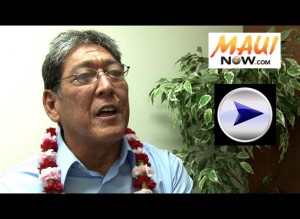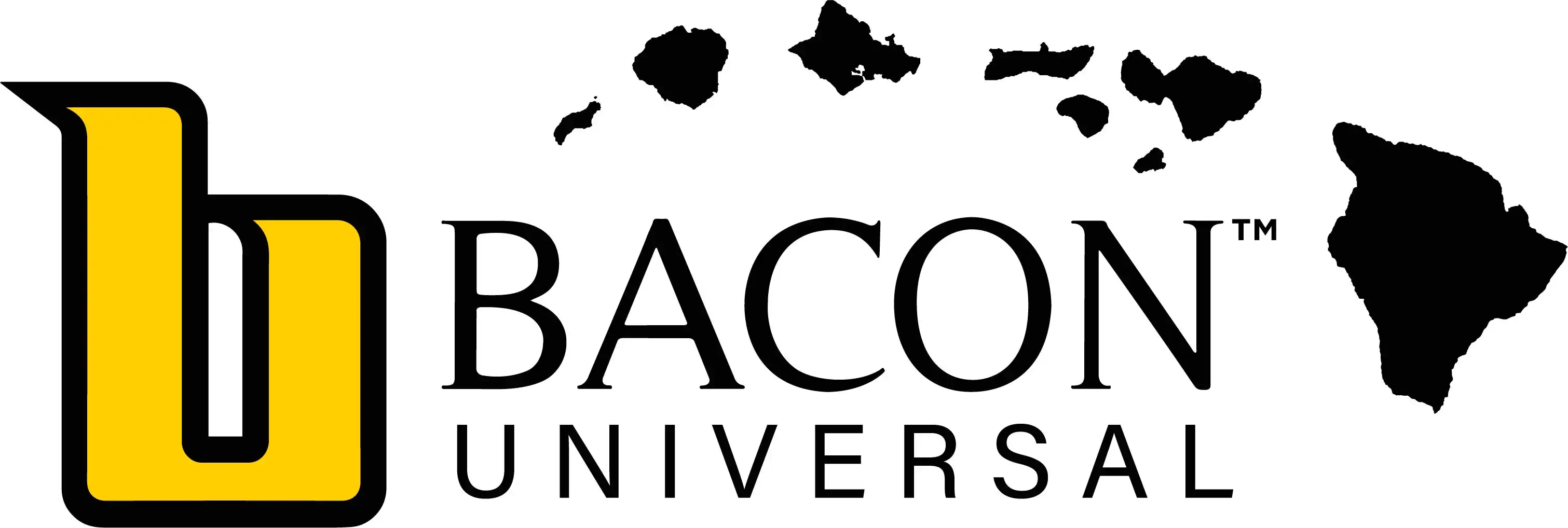VIDEO: Wayne Nishiki, South Maui Council, Candidate Profile, Decision 2010 MauiNOW.com
Wayne Nishiki, 2010 candidate for South Maui Council, Transcript:
Introduction: Aloha, my name is Wayne Nishiki and I’m running for the South Maui council seat. I will continue to focus on jobs for our current residents, and helping our residents get through these dark economic times. Jobs can be provided not just for high-end luxury homes, but we can develop also affordable housing, water storage projects, reclaimed water line projects for irrigation, and also alternative energy projects. I believe also that there have been people wanting to see land kept in perpetuity, so I want to see some ag parks, and also some community gardens for food growing. Some projects that I can see that can happen are people working in the construction industry, our Molokai Fire Station which is about to be built, $40 million has been set aside for our Kihei Police Station, and hopefully, we can also create a high school for Kihei.

Click image to view VIDEO of our Candidate Profile segment with Wayne Nishiki, incumbent candidate for County Council, South Maui.
Budget: What is your experience and understanding of the county budget; and your priorities for funding? Answer: As a past and current council member, I have spent a tremendous amount of time dealing with our county budget. Regarding the budget this year I have continued to have the same focus in priorities: 1. This past budget session so that we can keep taxes as low as possible, and we did not raise property taxes. I asked for key positions, six positions in all that would collect nearly $19 million from the backlog of property tax appeals;And on nearly $15.7 million in delinquent taxes. I also asked for positions to collect about $425,000 from ag verification and another $250,000 from the home exemption enforcement. These add up to over $41 million in revenues that can provide new parks, police stations, fire stations, and services like meals on wheels for our residents without raising taxes. While keeping taxes as low as possible, I think that the people from the private sector will also be proud of Maui County. On a personal note, I demanded and asked that my staff of two and myself also take a basic cut in salary, so we reduced our own salaries by about 4.25%.
Hawaiian rights: New developments often have a provision that allows access for Native Hawaiians to participate in traditional and customary practices, yet it is sometimes viewed as a compromise where permission must be sought to do what some believe is an inherent right. How can the council navigate the delicate balance between development and cultural preservation. Answer: Regarding Hawaiian Rights, I guess some of you have seen the upside down Hawaiian flag on my desk in the council chambers. In response to a few inquiries, I submitted a viewpoint in which I explained that an upside down flag is the international signal of distress, that I believe Hawaiians are a people in distress. The flag reminds me of taro farming, one which relies on the cold water from streams, which was a fundamental part of the Hawaiian culture, yet on average, a mind-boggling 163 million gallons of water per day–as much as Oahu consumes–is diverted from our streams. This lack of stream water impacts residents who exercise traditional and customary rights for subsistence, and cultural and religious purposes–such as fishing, gathering limu, and taking of oopu, hihiwai, and opae from streams. In their diverted state, native stream life has virtually disappeared in most county streams, hindering the ability of residents to pass these practices on to future generations. The flag reminds me of ongoing desecration to the ancient Hawaiian burial sites. I believe that the iwi kupuna should be treated with utmost respect. Those charged with protecting them, either insist that burial sites do not exist in development areas, or allow Hawaiian burials consisting of iwi to be excavated, removed from their resting places, and left in cardboard boxes, sometimes for years. Today, access to beaches have been severely limited by resorts and multi-million dollar homes. I believe many people voted me into office, trusting that I will continue to defend what is left of the Hawaiian culture.
South Maui Park: What are your thoughts about the construction of the new South Maui Park? Do you think it will help meet community needs, or was it poor planning given its proximity to the already established Kihei Community Center and the extra costs associated with blue rock removal? Answer: I believe first of all that the residents and families of South Maui deserve to have their own regional park. It’s a place to relax, to recreate, and to enjoy times with friends and family. I think if you look at our parks currently in South Maui, you’ve got just many different–soccer, basketball, football, even cheerleading–all piled upon each other because we lack the parks. In reality, I voted in support of acquiring the land for the South Maui Regional Park, and continue to appropriate funds for its completion. Most recently, I made sure that funding for adequate lighting was not cut in the budget. Also in the works for this regional park in a later phase, is an enclosed gym, in which I will make sure that continues to be put into future plans as we develop the park. So, I believe in it and I totally support its funding.
Shark Tours: The current council discussed possible county regulations to restrict shark tours in Maui waters. What are your thoughts on the shark tour industry? Answer: I believe that myself and many council members, including the mayor, supported this initiation to lead the state in control of shark tours. I personally initiated, and the council voted unanimously to pass a bill that bans shark tour operations in Maui County. I do not think that our environment and its resources that are for all to enjoy should be exploited by a few eager to make a profit. I believe that this practice is most disrespectful to the Hawaiian culture, and have listened to my kupuna and asked for their help. In fact, many Native Hawaiian families have the shark as their aumakua. This practice (shark tours) could also put swimmers and surfers, windsurfers, those of us that just enjoy the ocean at risk if sharks were regularly to associate people with food, in which these shark tours do.
Closing thoughts: I really care deeply for Maui County and the state of Hawaii. It’s where I was born and raised, and where my children and grandchildren all are being raised here in the state. It is vital that we not lose the lifestyle and the environmental resources that make Maui County so special. I think the clean air, the beautiful sunsets, the sunrise, are all things that no matter if you have come from the mainland and decided to call Maui your home, or those kamaainas, the different ethnic groups–the Filipinos, the Portuguese, the Caucasians, the Japanese, the Koreans–we all live together and it’s such a special place. These times, when Maui County needs a person–I believe that is not afraid to ask the hard questions, I think has 22 years of experience, I think that I am willing to also support our seniors that have given us much wisdom and have laid the foundation for those of us that live here now. I continue to support the senior transportation. I think for the young people, I also support the Boys & Girls Clubs and all of the after day activities for them. I think for the handicapped, we also give the handicapped people, for those of you that are handicapped, bus transportation to the doctors. And also, not forgetting the most needy. I continue to fund the Food Bank because I know that there are a great many of you, especially in this day and age right now, that need food and so we’ve given much to the Food Bank. Again, it is not just Wayne Nishiki, but other members of the council and the administration that have helped me to do my job. So, I would humbly ask for your support. I love this beautiful place and I will promise to pledge to keep it to my best of ability in the good old times and not urbanize this place to where we don’t recognize it. And for me myself and future generations, I will not sell Maui out. Thank you.









